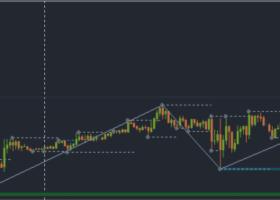Dirk Schumacher, Research Analyst at Goldman Sachs, notes that the SNB, as widely expected, left policy rates unchanged at its March policy meeting.
Key Quotes
“While the SNB will remain “active in the foreign exchange market”, the statement and the new inflation projection do not signal that any further easing is imminent. We continue to believe that, owing to the potential negative side effects, only renewed significant appreciation pressure on the CHF would make the SNB lower its policy rates further.
The updated inflation forecast for 2016 (-0.8%) and 2017 (+0.1%) show a small downward revision, mostly on the back of a lower expected path for oil prices. The SNB now expects inflation to become positive again only in Q3 2017, compared with Q1 2017 previously.
The SNB is also more cautious, when compared to the December meeting, with regard to the economic outlook. Owing to weaker global growth, the growth forecast has been revised down to 1.0%-1.5% (+1.5% previously). But the SNB also sees continuing downward pressure on profit margins of Swiss companies as a consequence of the overvaluation of the CHF, weighing on their willingness to invest. Overall, the SNB sees an increase in downside risks compared with its last assessment.
The more subdued outlook reinforces the SNB’s determination to counter any upward pressure on the CHF, which the SNB still views as “significantly overvalued”. Consequently, the SNB will “remain active in the foreign exchange market, in order to influence exchange rate developments where necessary”.
The extent to which the SNB will be forced to counter any further appreciation pressure on the CHF will depend crucially on the ECB. The shift in focus by the ECB away from policy rate cuts towards credit easing measures, as announced at the ECB’s March meeting, reduces the likelihood that the SNB will need to intervene in the FX market or cut policy rates further.
While inflation will undershoot the SNB’s target for a prolonged period, we do not think that this by itself is reason enough for the SNB to ease policy further. After all, the SNB has shown a relatively high tolerance of an undershooting of inflation given its limited room for additional easing measures. Hence, the SNB will remain, we think, in a wait-and-see stance, with a watchful eye on any ECB action and its implications for the CHF.”


